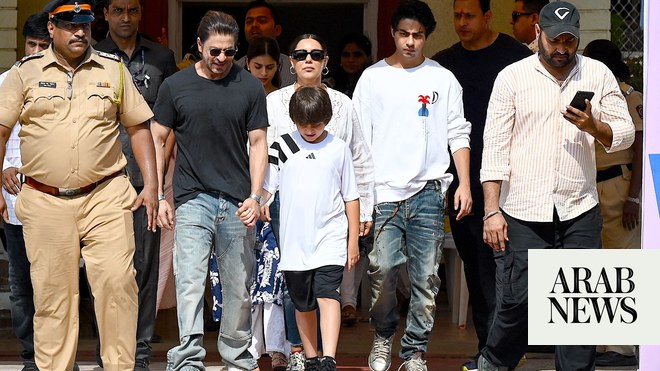
The elections will see 11 celebrities make their electoral debuts: Bollywood personalities Sunny Deol and Urmila Matondkar are candidates for the BJP and the opposition Congress Party respectively
NEW DELHI: Celebrities have long been integral to Indian politics, making their presence felt both as campaigners and candidates. This year, however, it seems they are more willing than ever before to speak about their personal political stances, with many openly propagating the ideology of the establishment.
The elections will see 11 celebrities make their electoral debuts: Bollywood personalities Sunny Deol and Urmila Matondkar are candidates for the BJP and the opposition Congress Party respectively; the well-known South Indian actor Prakash Raj is standing as an independent candidate in a Bangalore constituency; and some leading lights of the Bengali film industry are candidates for regional political party Trinamool Congress in the eastern state of West Bengal. Olympic boxer Vijendra Singh steps into the political ring as a Congress candidate in Delhi, and another Olympian, discus gold medallist Krishna Poonia, is on the Congress ticket in the western state of Rajasthan, while international cricketer Gautam Gambhir is running for the BJP in East Delhi.
There are stars seeking reelection too, including Hema Malini, Jaya Prada and Kirti Azad.
But aside from the celebrity candidates, famous faces are also being increasingly vocal about their political preferences. Last week, more than 50 Bollywood celebrities visited the ruling Bhartiya Janata Party (BJP) headquarters in Delhi to show their support for Prime Minister Narendra Modi’s campaign to retain his position.
Led by film producer Boney Kapoor, the film stars met with Foreign Minister Sushma Swaraj and affirmed their support for the BJP.
Days earlier, one of Mumbai’s leading actors, Akshay Kumar, conducted a “non-political” interview with Modi, in which Modi did his best to promote himself as a man of the people.
The interview was widely aired, something which — as of yet — cannot be said of the biopic “PM Narendra Modi,” in which the popular actor Vivek Oberoi plays Modi.
The film was originally scheduled for release during the elections, but India’s Election Commission told the director to postpone until after the polls are closed. Oberoi and Kumar did not respond to Arab News’ requests for comment.
The BJP began publicizing its celebrity support long before the elections started. In January, Bollywood A-listers including Ranbir Kapoor, Karan Johar, Ranveer Singh, and Ayushmann Khurrana met with Modi in Delhi, and a picture of the prime minister surrounded by stars was widely shared.
“One thing is clear: the purpose behind the BJP’s open wooing of Bollywood is to score propaganda points and influence young voters, and tell them how much the stars adore Modi,” said Pawan Pratyay, a journalist based in Patna.
“The film ‘Uri: The Surgical Strike,’ which was released in January, was timed in such a way that it could have an impact on elections. It was basically a propaganda film aimed at boosting the image of Modi and his regime.”
“Uri: The Surgical Strike” is based on the retaliatory action carried out by the Indian army against militants in Pakistan-administered Kashmir in 2016. The Indian government claimed it as a great military triumph and the media also portrayed it as a great achievement.
Veteran film critic Zia Us Salam told Arab News: “Bollywood is using the Indian Prime Minister to score (financial) gain for the industry.”
He added that such actions are reminiscent of Bollywood’s reaction to the BJP administration of 1998-2004, when it also tried to cater to “a right-wing, Hindu agenda.”
This time, he said, the film industry’s “attempt to spread a radical right-wing agenda is more widespread.”
He cited “Blank,” a movie starring BJP candidate Sunny Deol, as an example, describing it as “nothing but an open expression of Islamophobia.”
He stressed, however, that it is not just right-wing parties that have benefitted from Bollywood in the past.
“Cinema has always been the hand maiden of politics,” he said.
“In the 1950s and 1960s, films used to cater to the prevailing socialist ideology of the time.”
Salam described last week’s meeting between BJP leaders and Bollywood stars as “an ugly demonstration of their political predilections.”
“The central government has been openly promoting divisive ideology that attacks the idea of India, and a section of the film fraternity is speaking the same language,” he said.
BJP youth leader Pappu Nirala told Arab News: “The very fact that Bollywood is admiring Modi demonstrates that they understand politics has changed. Art is nothing but an expression of society.”












